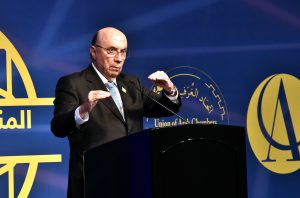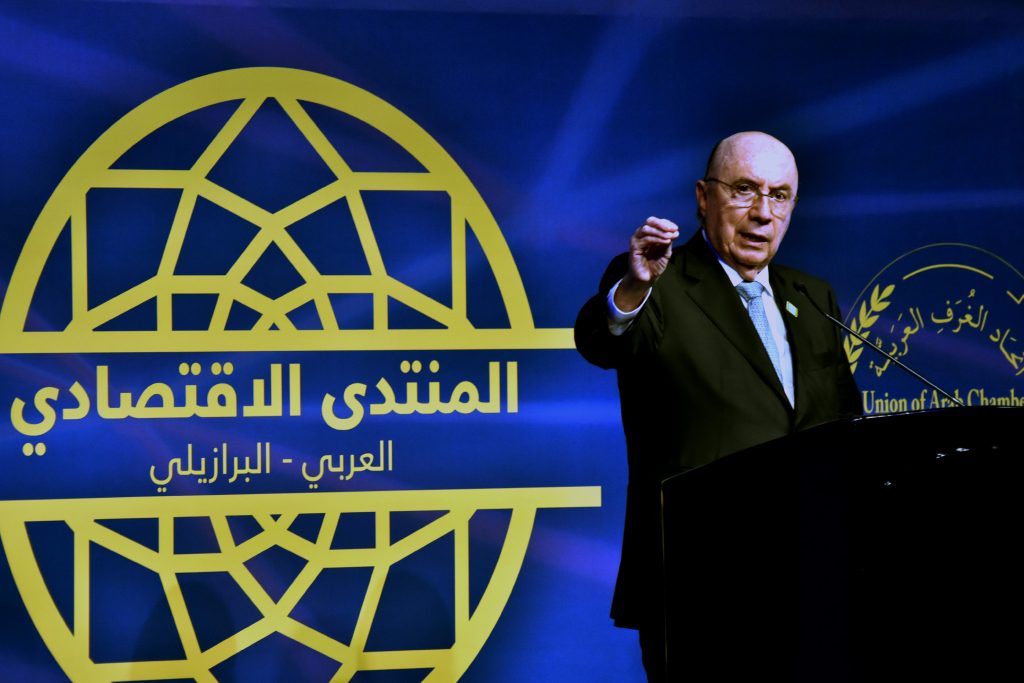São Paulo – Brazil’s Finance minister Henrique Meirelles said this Monday (2) in a lecture at the Brazil-Arab Countries Economic Forum, in São Paulo, that he believes the national economy will grow by a higher-than-expected rate. At the event held by the Arab Brazilian Chamber of Commerce, the minister pointed out that the administration’s official GDP growth forecast remains at 3%.

“We got Brazil out of the worst recession in its history,” the Finance minister said, referencing the economic crisis that plagued the country over the past few years. In 2017, after shrinking for two years on end, the economy grew by 1%.
According to Meirelles, getting the country out of recession was the first of two missions he was tasked with upon taking office, in the wake of former president Dilma Rousseff’s impeachment. “This one we have already accomplished,” he said. The second mission, he said, is to get Brazil back on track to sustained, lasting growth.
To this end, the government has relied on three pillars: fiscal measures, interest rates and productivity gains. Meirelles outlined some of the actions that were taken in each of those realms. Fiscal measures included a spending cap, a fiscal recovery regime for states, the narrowing of the debt the Brazilian Development Bank (BNDES) owes to Treasury, and a reworking of student loan program FIES.

Regarding interest rates, he mentioned actions such as a good debtor list, changes in credit card instalment payment schemes – which he said used to cause consumer debt to mount without them realizing it – and the electronic trade bill. As for productivity, the minister listed the labor reform, the outsourcing law and the future privatization of power utility company Eletrobras.
“I am positive that Brazil will keep going and that reforms will continue, with the people’s support, so that the country can grow sustainably,” the minister said, remarking that the many of the changes carried out by the administration are yet to take full effect. “They will become clearer over time,” he said.
Translated by Gabriel Pomerancblum




